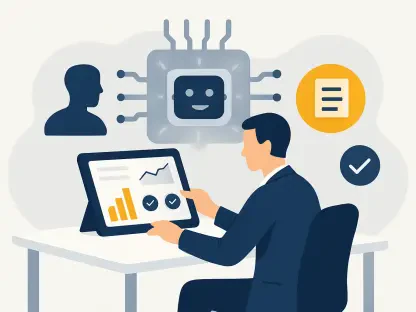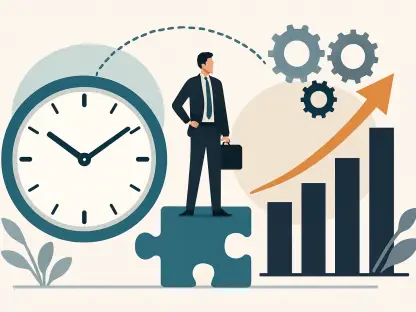Diving into the heart of a heated debate within the HR community, I’m thrilled to sit down with Marco Gaietti, a seasoned expert in business management with decades of experience in strategic management, operations, and customer relations. Marco brings a unique perspective to the table, having advised numerous organizations on navigating complex workplace dynamics and fostering inclusive environments. Today, we’re exploring the recent controversy surrounding the Society for Human Resource Management’s (SHRM) decision to feature a polarizing figure on a panel at their upcoming Blueprint conference. Our conversation delves into the balance between open dialogue and professional values, the impact on organizational credibility, and the broader implications for diversity, equity, and inclusion (DEI) in the workplace.
How do you see SHRM’s rationale for including a vocal opponent of DEI on their conference panel, and what might have driven this decision?
From a strategic standpoint, SHRM likely aimed to spark a broader conversation by including diverse viewpoints, even controversial ones. I think they wanted to position themselves as a platform for all perspectives in HR, emphasizing the importance of dialogue in a polarized climate. However, this decision seems to overlook the potential alienation of their core membership, who expect SHRM to uphold values like equity and inclusion as non-negotiable pillars of the profession. It’s possible they underestimated the backlash or saw it as a calculated risk to appeal to a wider audience.
What’s your take on the concept of ‘civil discussion’ when it comes to including perspectives that challenge core HR principles like DEI?
Civil discussion is crucial in any profession, but it’s a delicate balance in HR, where our work directly impacts people’s lives and livelihoods. Including opposing views can be valuable for understanding different mindsets, but it risks legitimizing perspectives that undermine fairness and dignity at work. The line should be drawn when a viewpoint moves from critique to advocating harm or exclusion. HR isn’t just about debate—it’s about creating safe, equitable spaces, and that responsibility can’t be sidelined for the sake of appearing neutral.
How do you think SHRM’s decision might affect its standing as a trusted leader in the HR field, especially given the strong backlash from professionals?
This controversy could seriously dent SHRM’s credibility. When members—especially long-standing ones—publicly express disappointment or threaten to leave, it signals a disconnect between the organization’s actions and its stated mission. HR professionals look to SHRM for guidance on upholding workplace standards, so platforming views that many see as contrary to those standards can erode trust. It’s a risky move that might make some question whether SHRM prioritizes relevance over integrity.
What are your thoughts on the criticism that featuring a speaker without HR credentials could weaken professional standards in the field?
I think there’s validity to that concern. HR is a specialized field with a unique set of ethics and expertise, and bringing in voices without that background can dilute the conversation. While outside perspectives can offer fresh insights, they need to be contextualized within HR’s framework. If the selection criteria aren’t transparent or tied to professional relevance, it can make the organization seem less serious about maintaining the rigor of the field, which is a disservice to certified professionals who’ve invested in those standards.
Given the polarizing nature of this panel, how can an organization like SHRM ensure discussions remain productive and don’t veer into harmful territory?
It starts with clear ground rules and a skilled moderator who can steer the conversation away from personal attacks or inflammatory rhetoric. The focus should be on dissecting ideas, not demonizing individuals or groups. SHRM could also provide pre- and post-panel resources to contextualize the discussion, ensuring attendees understand the organization’s stance on DEI. Transparency is key—acknowledging the controversy upfront and outlining the purpose of the panel can help frame it as a learning opportunity rather than an endorsement of harmful views.
How should HR organizations respond to critiques from leaders who argue that platforming anti-DEI rhetoric could lead to real-world harm in workplaces?
They need to take those critiques seriously and engage directly with the concerns. Acknowledging the potential for harm is the first step—HR isn’t abstract; our policies and culture shape real human experiences. Organizations like SHRM should demonstrate how they’re safeguarding workplace equity, perhaps by doubling down on DEI initiatives or providing data on the positive impact of inclusion. Ignoring or dismissing these criticisms only deepens the divide and makes it seem like they’re out of touch with the very community they serve.
What is your forecast for the future of DEI discussions within HR, especially in light of controversies like this one?
I believe DEI will remain a cornerstone of HR, but the conversation will become more nuanced and, unfortunately, more contentious in the short term. We’re seeing a cultural pushback in some quarters, and HR organizations will need to navigate that tension carefully. My forecast is that successful HR leaders will focus on grounding DEI in measurable outcomes—showing how it drives engagement, innovation, and retention—while fostering spaces for tough conversations without compromising core values. The challenge will be staying true to the mission of equity while adapting to a rapidly shifting societal landscape.









